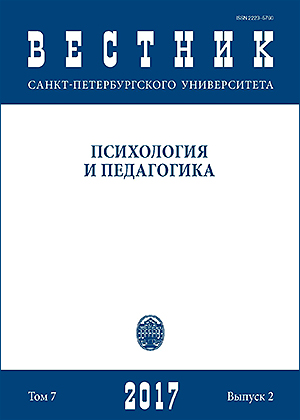“Concept Synthesis” test for intelligence research: Qualitative analysis and conceptual commentaries
DOI:
https://doi.org/10.21638/11701/spbu16.2017.202Аннотация
Методика «Понятийный синтез» была предложена М.А.Холодной в рамках онтологического подхода к исследованию интеллекта как альтернатива существующим инструментам измерения интеллектуальной успешности. Статья посвящена обсуждению и обобщению опыта работы с методикой, качественному анализу заданий и пересмотру оригинальных критериев оценки ответов. На основании материалов, собранных в трех различных исследованиях (с 2013 по 2015 г.; всего 104 испытуемых) была составлена база данных, включающая в себя 924 ответа на задания методики «Понятийный синтез», оцененных согласно оригинальным критериям. Все ответы были повторно и независимо оценены тремя экспертами-психологами. Результатом такой работы стали модифицированные критерии оценки ответов. Также в статье представлен качественный анализ более 40 различных ответов. Обсуждаются типичные методические затруднения, возникающие при работе с оценкой заданий, и предлагаются возможные варианты их разрешения.
Ключевые слова:
интеллект, диагностика интеллекта, концептуальные способности, методика «Понятийный синтез»
Скачивания
Библиографические ссылки
References
Загрузки
Опубликован
Как цитировать
Выпуск
Раздел
Лицензия
Статьи журнала «Вестник Санкт-Петербургского университета. Психология» находятся в открытом доступе и распространяются в соответствии с условиями Лицензионного Договора с Санкт-Петербургским государственным университетом, который бесплатно предоставляет авторам неограниченное распространение и самостоятельное архивирование.




